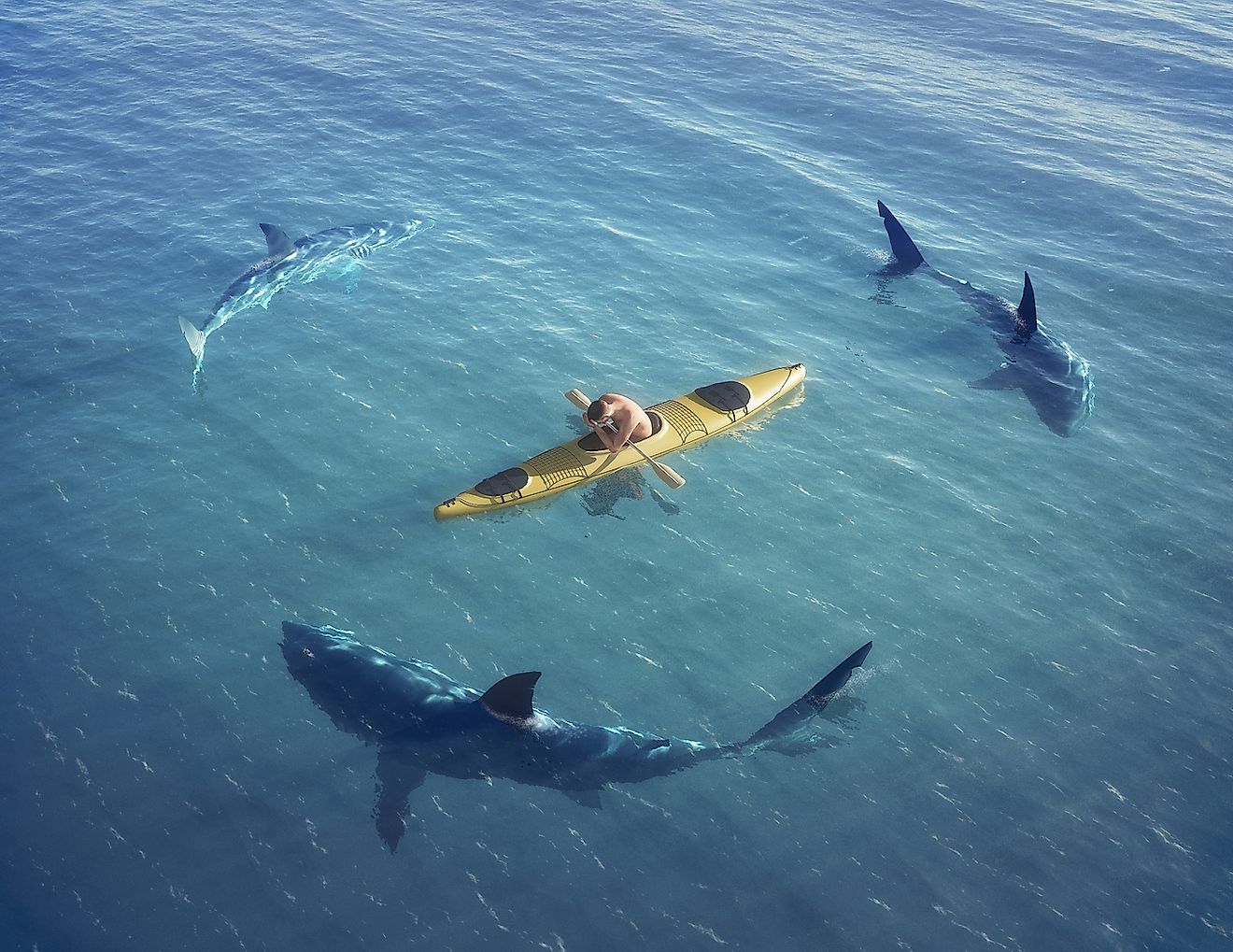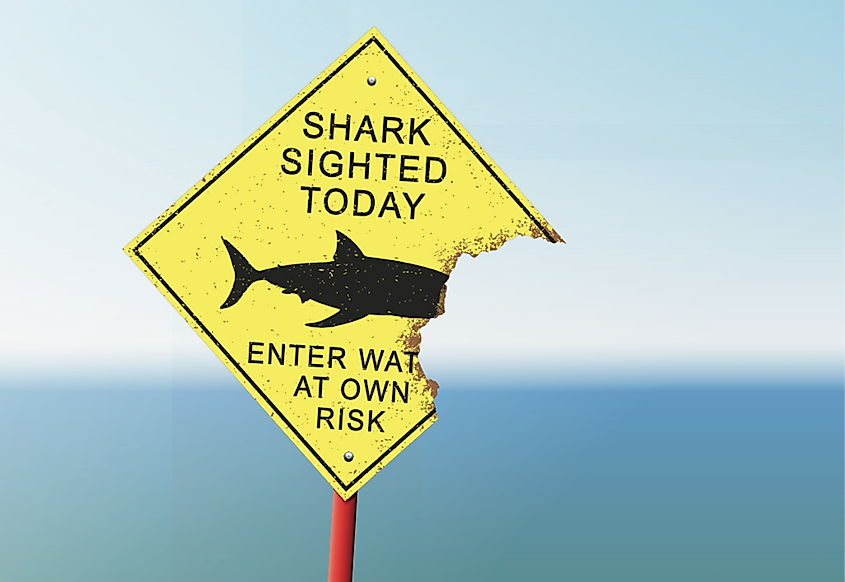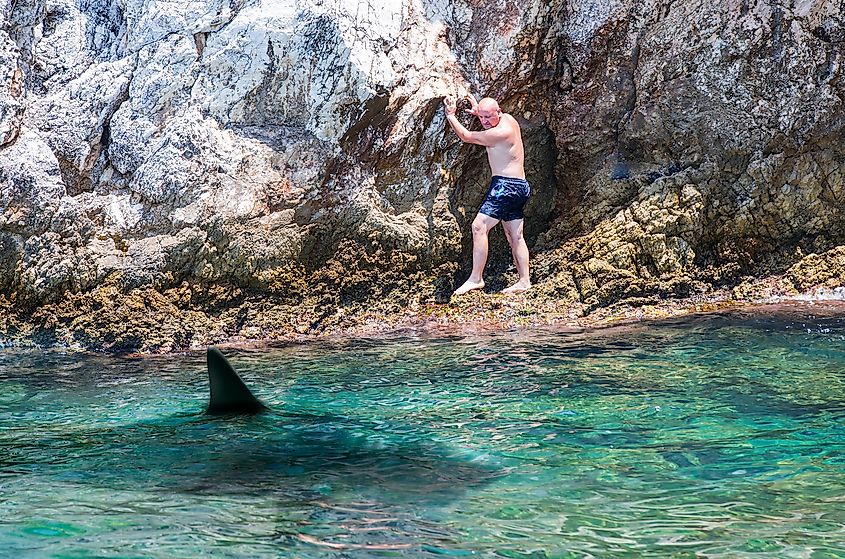How Many People Are Killed By Sharks Every Year?

- Shark attack reports indicate that just five people were killed by sharks in 2019 in the entire world, but there were likely unreported shark attacks as well.
- Sharks tend to hunt at dusk, during the night, and at dawn, so stay out of the water during these times to stay safer.
- Some experts advise that you poke a shark in the eyes and gills if one ever attacks.
They are the terrors of the ocean, the ultimate carnivorous murderers of the high seas: sharks. These creatures get a pretty bad rap and it is true they can be intriguing, but they are also something that will eat you for supper in a snap, if they wish to.
According to the Florida Museum, in 2019, there were 64 reported cases of unprovoked shark attacks worldwide. Keep in mind that this number is much likely to be lower than what really happened between people and sharks in the ocean during this year. As Gavin Naylor, the director of the Florida Program for Shark Research stated to BBC.com, most reports of shark attacks come from highly developed countries that have large populations, and a lot of people watching the nightly news. There are probably many harsh encounters that happen year round in more remote places that simply go unreported on a global scale.
That being said, of the 64 shark attacks that were reported in 2019, five did end up killing someone. The global average for reported deadly shark attacks is said to about four per year, and so 2019’s total was just slightly above this.
Interestingly, sharks do seem to be out to get Americans more than others, as this country had the highest number of unprovoked shark attacks in 2019. In this year, 41 people in US waters were blitzed by sharks, easily beating Australians who came in second with eleven attacks, and those in the Bahamas, who had just two. All other countries in the world that reported having a shark attack said they had just one all year round.
Why do sharks attack humans? Here is a look at things not to do when in the ocean, and places to avoid.

Reasons Sharks Attack
As the National Ocean Service states on its website, most sharks would much rather eat some tasty fish, sea lions, and other marine life than bite into a chewy human to satisfy their hunger. Sharks do attack people, however, and when it happens, most often it is because they have confused the human with something else, (like a sea lion going for a dive). If you are splashing around in the water either because you are having fun, or because you are struggling to stay afloat, a shark may approach you, simply because they are curious to see what all the fuss is about. These creatures are opportunistic eaters, and so if the moment presents itself, they may take action. If you seem to present yourself like some form of injured sealife, you may seem ripe for the picking, in the eyes of the shark.
Experts say, however, that most often, sharks do leave us alone. We would actually be surprised to know how many times we may have been in the water close to one, and not known it.

When And Where They Are Most Active
Sharks tend to hunt their prey at dusk, during the night, and at dawn. Basically, it is safest to stay out of the water in the evenings and after dark, and to go in only once the day is in full swing. Sharks will also strike during the daylight hours, however, if the opportunity presents itself, so beware.
According to the Florida Museum, sharks mostly attack people in ocean waters that are near the shore. They attack more often when they are on the shore side of a sandbar, or between two sandbars. This is where sharks often feed on fish, and they can sometimes get “trapped” in these waters at low tide.
Documented shark attacks tend to be on the east and west coast of the US, in the Caribbean, in North Africa, off the tip of South Africa, around Australia, and near the South Pacific Islands. Some sharks attack with one, enormous and deadly bite, while others sink their teeth in and then withdraw as they wait for you to bleed to death, before chowing down. Pleasant.

Tips For Staying Safe
The absolute very best way to avoid being eaten by a shark is to stay out of the ocean waters. Go swimming in your local pool, or take a dip in the nearby lake or river. Professionals from the Florida Program for Shark Research also suggest that you swim in groups in the ocean, to stay safe. Absolutely do not go swimming near schools of fish, especially those that are jumping out of the water, and avoid wearing jewelry that reflects light, which can make you look like a scaly fish that's prey. Do not splash in the water, and avoid wearing bright colors that can attract a shark’s attention, again, making you look like a fish. Also, stay close to shore-sharks do prey "nearer" to shorelines, but are much less likely to go where it is too shallow for them to swim.
If you do ever encounter a shark in the water, some say you should poke it in the eyes and the gills. Stay safe.











